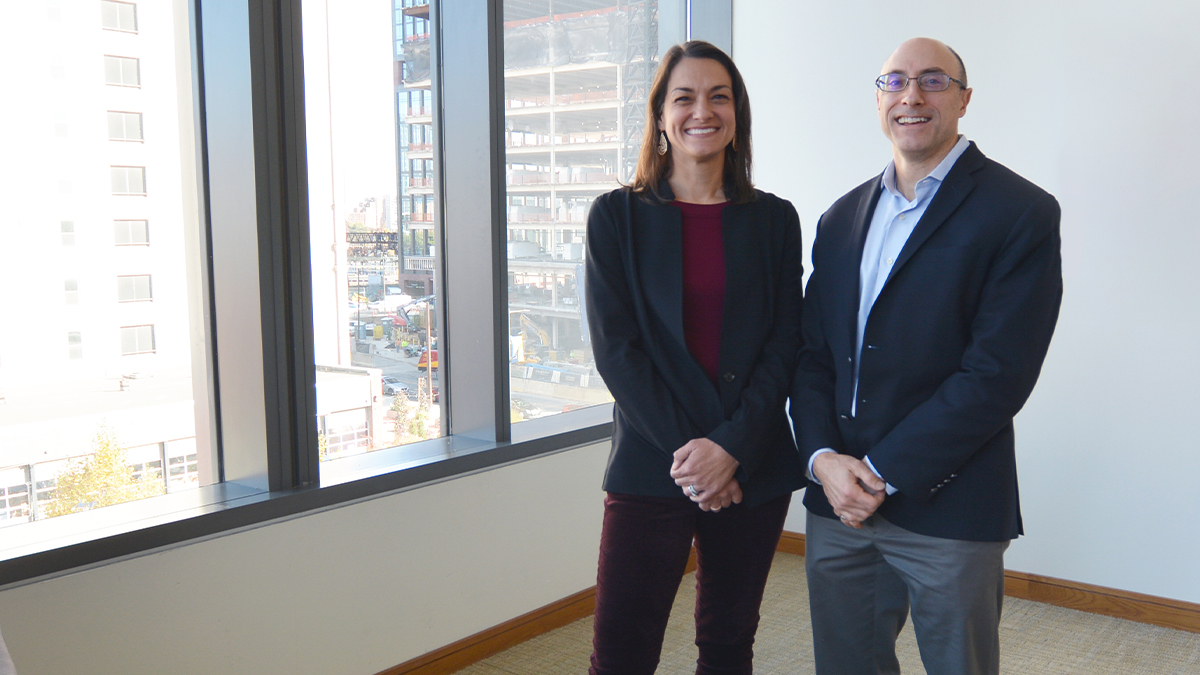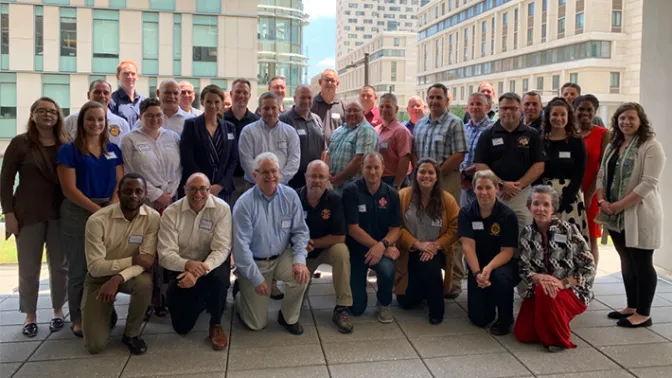
In Creating Goals and Sharing Their Vision, Leaders Can Set an Unhealthy Standard
In a workplace setting, what could motivate employees to act unethically? Could they end up doing the wrong thing for what they think are the right reasons — or even because they believe it’s encouraged or expected?
Three faculty members from LeBow’s Department of Management teamed up to explore this topic in “When Focus and Vision Become a Nightmare: Bottom-Line Mentality Climate, Shared Vision and Unit Unethical Conduct,” published in the Journal of Applied Psychology. Christian Resick, Mary Mawritz and Lauren D’Innocenzo co-authored the paper along with Lorenzo Lucianetti, PhD, of the University of Chieti and Pescara in Italy and LeBow doctoral alumni Stacy Boyer, PhD ’23 and Jae Young Choi, PhD ’21.
The paper cites examples of unethical behavior from employees and leaders at Enron, the energy firm that failed in the late 1990s, and aircraft manufacturer Boeing, and goes on to examine similar actions categorized as “unethical pro-organizational behavior.”
Resick, lead author of the paper, notes that these kinds of behavior rarely make headlines despite being widespread.
“We often think of unethical behavior as being self-serving, but this behavior is ultimately aimed at helping the organization, such as hiding potentially damaging information about the company or its products,” he says.
The paper, a unit-level study with data from specific work units across 96 different small to mid-size companies, extends prior research on bottom-line mentality, originally formulated by Mawritz and Rebecca Greenbaum, PhD, of Rutgers University in a 2012 paper.
“This was a good opportunity to collaborate with Mary and to do something new in this space,” Resick says. “We took this measure that Mary and Rebecca created and targeted it on bottom-line financial performance by shifting the way we ask people to respond and capturing both their beliefs and actions.”
As an expert on bottom-line mentality, a construct that focuses attention on attaining key financial goals, Mawritz supplied key insights throughout the project.
“Christian and I have published a few papers together, and we know one another very well,” she says. “In our research projects, collaboration is so important in terms of building upon each other and having brainstorm sessions where you move each other forward and complement one another in terms of strengths and weaknesses.”
An expert on team dynamics and behavior, D’Innocenzo joined further along in the project and provided analytical expertise as the other co-authors addressed edits and revisions.
“Lauren is really great in understanding the team aspect of collective vision, but she also has these skills in certain analytical techniques. She added this expertise at a later stage that changed the dynamic of what we were doing and really strengthened the conclusions,” Resick says.
Prior research in organizational behavior has characterized vision, and shared vision in particular, as important and has focused on different ways of building it. Vision that’s narrow in focus, though, can create this motivation to achieve a very narrow set of results and to do whatever it takes to achieve them while not thinking about process or consequences.
The paper’s findings show that a bottom-line mentality climate, which Resick and colleagues defined as “shared perceptions that the norms and expectations are one-dimensional and emphasize attaining bottom-line financial results while disregarding competing priorities,” has a strong influence on the incidence of these unethical, pro-organizational behaviors among employees: specifically, behaviors that might help an employee achieve bottom-line financial goals, such as hiding mistakes, giving preferential treatment and accepting gifts or bribes.
The twist to the paper’s findings, Resick says, is that bottom-line mentality is not enough on its own to motivate these behaviors.
“It’s this broader motivational context — this shared vision and collective understanding of purpose — that is really the necessary condition. Those types of behavior are only seen when people are really enthused about achieving this collective goal and do whatever it takes.”
Examining motivation in these work settings, and bottom-line mentality in particular, carries lessons for top leaders and lower-level employees alike. In introducing the concept to a class of MBA students, Resick observes that a quarter of the students ultimately responded that they wanted to have a bottom-line mentality.
With this paper, and in other organizational-behavior research, Resick says, “we want to help people see the impact of their work more holistically and to break out of tunnel vision that overlooks the ethical implications of what they do.”




